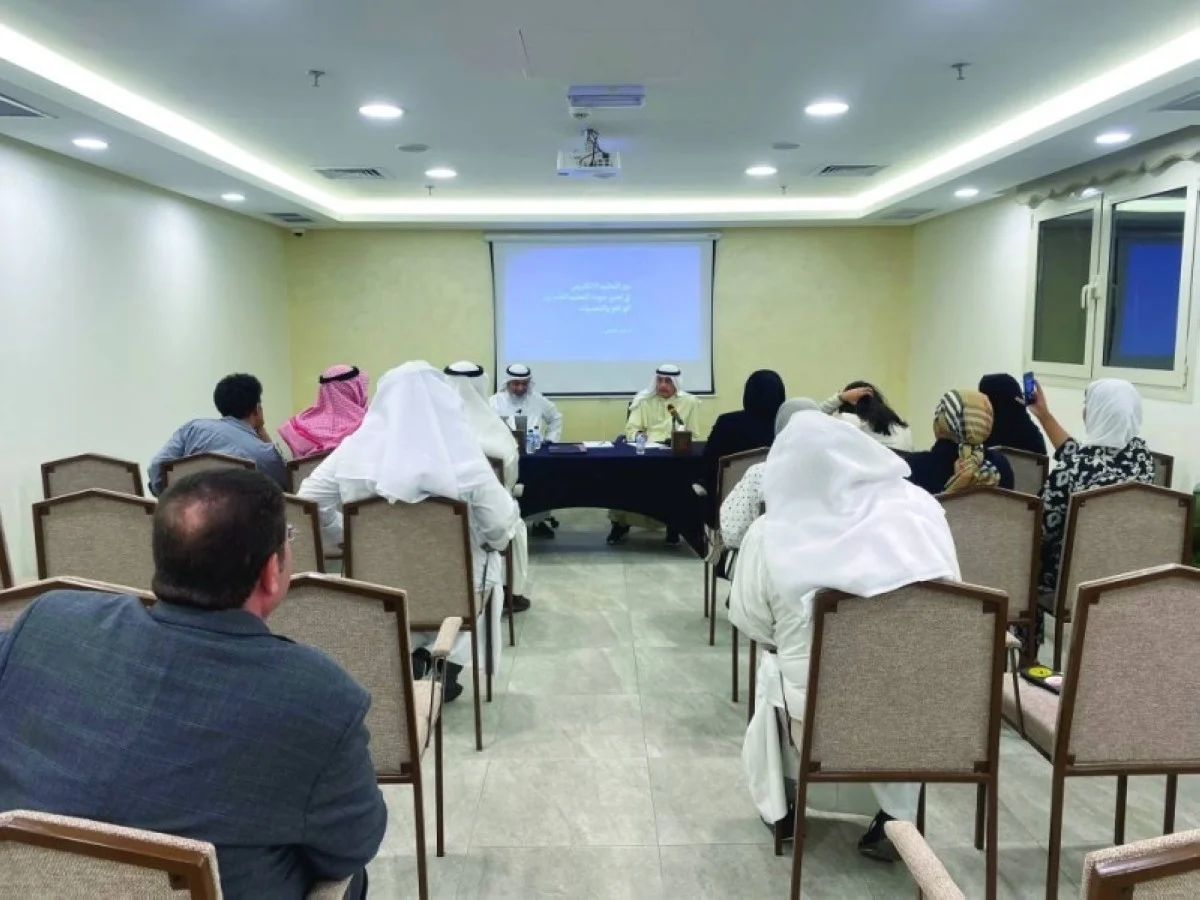25/09/2024
25/09/2024

KUWAIT CITY, Sept 25: Dr. Nabeel Al-Khulaifi, a faculty member at the Public Authority for Applied Education and Training, announced an initiative aimed at introducing advanced e-learning into schools. This initiative includes essential developments designed to address current challenges, such as the issue of cheating.
In a statement to Al-Rai during a symposium organized by the Social Workers Association, titled “The Role of E-Learning in Enhancing the Quality of Public Education between Reality and Challenges,” Al-Khulaifi noted that the stringent nature of paper testing has driven students to cheat. He emphasized that combating this issue does not solely involve imposing penalties on students or complicating the testing process; rather, various solutions exist, including random testing where each student receives a different test model.
He explained that “after the Corona pandemic, individuals were compelled to utilize technology for communication and information transfer. The State of Kuwait achieved significant advancements during this time, particularly in enhancing its technical capabilities for e-learning and enabling both students and teachers to use electronic devices for studying. However, some errors and challenges arose, as is typical with any new implementation.”
Al-Khulaifi highlighted the need for e-learning systems to demonstrate a higher level of professionalism, aiming to reduce cheating rates, integrate students with special needs, and facilitate teachers’ roles within the classroom. He also mentioned that “the next challenge is artificial intelligence, which must be harnessed to benefit both students and the educational process.”
He clarified that “e-learning differs from distance learning, as it is utilized within the classroom, whether through mobile phones, computers, or digital screens in equipped halls. Students can access documents, study schedules, information, and reviews at any time.” He stressed that “Kuwaiti students are intelligent and capable of understanding this, but we must transform education into an engaging experience through games and stimulating programs. This approach has been implemented successfully in some private schools.”
Al-Khulaifi pointed out that “public education in Kuwait requires sampling from schools to introduce e-learning systems, followed by measuring the experiment before adopting it.”
Meanwhile, Abdullah Al-Radwan, Chairman of the Board of Directors of the Social Workers Association, told Al-Rai that the e-learning symposium aims to address the challenges encountered during the distance learning process implemented during the Corona pandemic, including the issue of cheating.
Al-Radwan added that “the initiative presented by Dr. Al-Khulaifi will be submitted to officials in the Ministry of Education. This is a primary focus in all the seminars and workshops we conduct, as we aim to present it to relevant parties for their consideration and potential implementation.”


